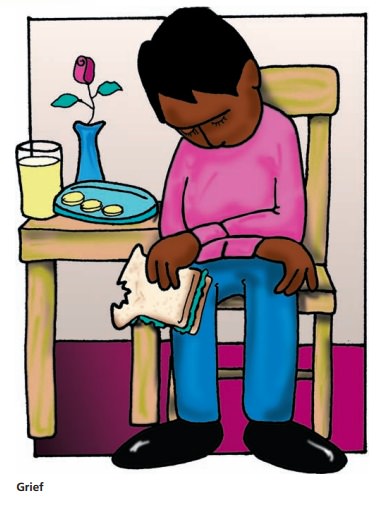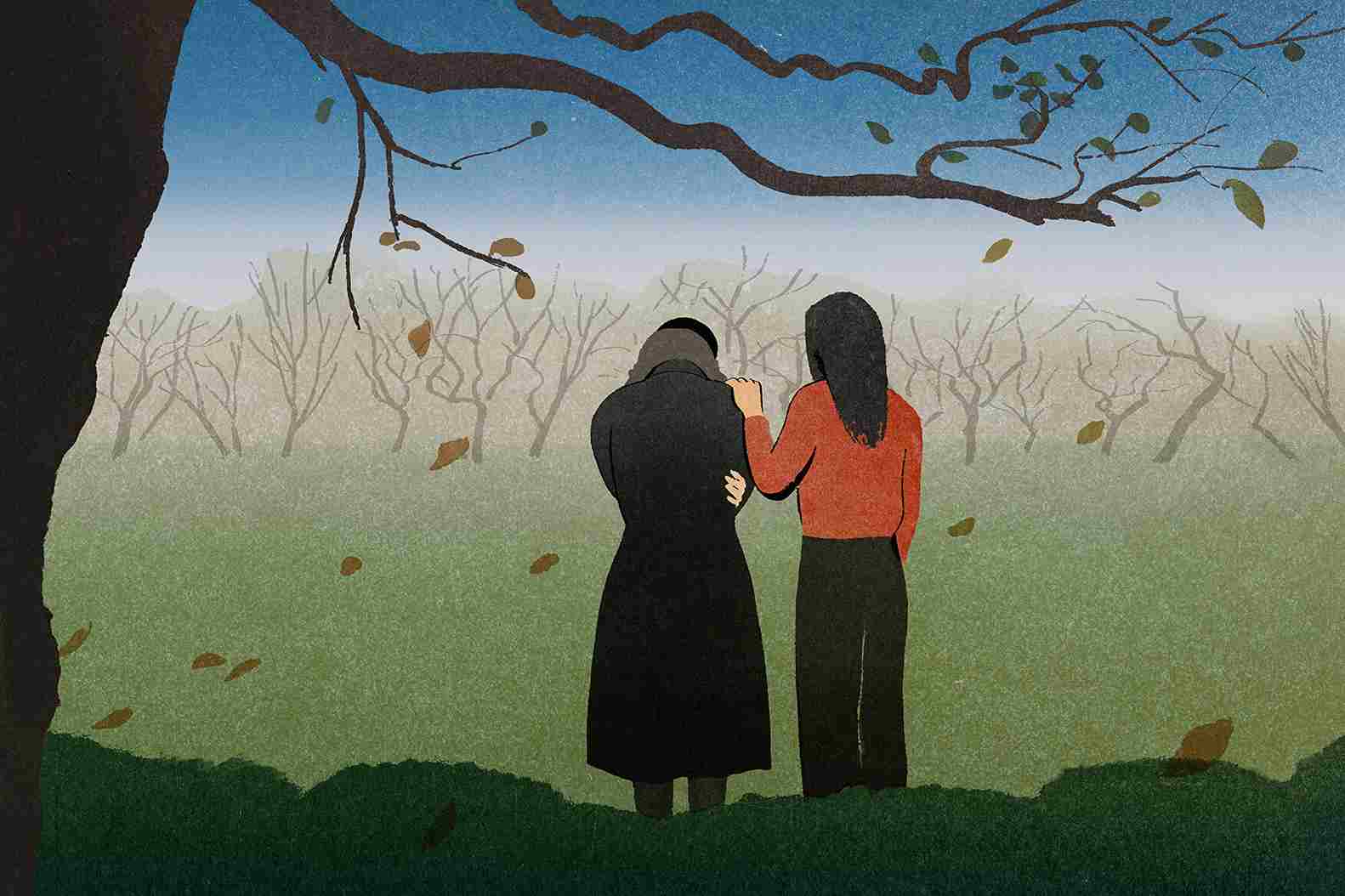Grief comes in many forms. For some, it might be the death of a loved one. For others, it might be a divorce. Or the loss of a job, or any other major life change. No matter what causes grief, it can be very difficult to cope with. In this blog post, we will discuss various ways to help you cope with grief through the theories of grief: the ball, the box, and beyond.
Contents
Understanding The Grief

It is important to understand the grief you are feeling. Through the theories of grief, it became easier to understand. It is a natural response to the loss of a loved one. You may feel like you are going crazy or that you will never be happy again. These feelings are normal and temporary too.
The Five Stages
To understand briefly the grief process. It is important to be aware of the five stages of it.
- Denial
- Anger
- Bargaining
- Depression
- Acceptance.
These ways are not always in order. And, not necessarily for you to experience all of them.
How Grief Feels Like At First?
Grief is a confusing and difficult emotion to deal with. It is often described as feeling like you are on an emotional roller-coaster. One minute you may feel fine, and the next minute you may feel like you are going to lose control. Grief can be overwhelming and make you feel like you are not yourself.
It is important to understand that grief is normal and natural. It is a response to lose, and it is okay to feel sad, angry, or scared after a loss. Grief does not have one specific look or timeline. Each person experiences grief in their own way and at their own pace. There is no “right” or “wrong” way to grieve. To explain this further with the theories of grief.
Furthermore, grief is not a linear process. At first, it might look heavier. But eventually, things will “settle down”.
Theories Of Grief
 Seeking help while grieving, is often like looking for a needle in a haystack. It is hard to know where to turn, or what will be helpful.
Seeking help while grieving, is often like looking for a needle in a haystack. It is hard to know where to turn, or what will be helpful.
There are theories of grief to help explain the process of grief. In the hope of making things a little easier. The three most popular theories are:
- The Ball Theory,
- The Box Theory,
- The Beyond Theory.
The Ball represents the person who is grieving. They are in a state of emotional turmoil. And, everything feels like it is happening all at once.
The Box represents the time frame. During which the person is grieving. It is a finite period of time. In which things happen in a more orderly fashion.
Beyond refers to life after the death of a loved one. This can be both good and bad, as there are new challenges. But also it presents new opportunities for growth.
The Ball Theory Of Grief
The ball theory of grief says that grief is like a ball of emotions inside us. The ball is constantly moving and shifting. As the ball moves, we feel different emotions. We might feel anger one day, and sadness the next.
The goal is not to get rid of the ball of grief. The goal is to learn how to manage it. To do this, we need to find healthy coping mechanisms.
Some people might try to stuff the ball of grief down. This can lead to all sorts of problems, like anxiety and depression. Other people might try to ignore the ball of grief. This can also lead to problems, like addictions or eating disorders.
The best way to cope with grief is to let it move and shift. We need to give ourselves time and space to feel all emotions.
The Box Theory Of Grief
This is another theory of grief, that makes a lot of sense. The idea is that when we put our grief into a physical space. It gives us a way to control it. We can put the box in the attic, in a closet, or under the bed. It becomes something that we can deal with on our own terms when we are ready.
It says that when we are ready to let go of the grief, we can open the box and release it. This can be done literally. By taking the box to a park or beach and releasing the contents into the wind. Or it can be done figuratively, by writing down our grief. And, then burning the paper in a ceremony.
The Beyond Theory Of Grief
The third theory is beyond. It refers to the metaphor of acceptance. Acceptance doesn’t mean that we’re happy with what happened. Or that we don’t miss the person who died.
Acceptance means that we’re willing to live with the pain of loss. And chooses to move on with our lives.
This theory, we can understand with four steps. The first step is to come to terms with the fact that our loved one is gone. This can be a difficult and painful process. The second step is to accept the help of others.
The third step is to find a way to honor our loved one’s memory. This might involve creating a memorial, writing about our memories. And, finally, in the fourth step in the third theory of grief, we need to focus on living our own lives.
Coping With Grief
 It is a situation, we all hope to never face. But dealing with the death of a loved one is something that we all have to go through at some point in our lives. No matter how you choose to cope with grief, it is a process that will take time.
It is a situation, we all hope to never face. But dealing with the death of a loved one is something that we all have to go through at some point in our lives. No matter how you choose to cope with grief, it is a process that will take time.
There are many different ways to cope with grief. Still, what works for one person may not work for another. The ways to cope with grief are endless.
Here are just a few of the most popular methods:
Self-Care
- Sharing Feeling – Talking to someone about your feelings. Sharing your feelings with your close ones can help you process. And, easily you will work through them. This could be a friend, family member, therapist, or support group.
- Indulging In Creativity – Expressing yourself through creative outlets such as writing, painting, or drawing can also be helpful.
- Physical Activity – Doing some physical activities can make to divert. It can help release some of the emotions that you may be feeling. Also, help in boosting endorphins and improving your mood.
- Spend Time With Nature – Being in nature can help you feel more at peace. It can help to clear your mind. And, will give you some time to reflect on your feelings.
Professional
If you feel like you are struggling to cope with your grief. Then, you must go for professional ways to get help. Such as:
- Counseling – Seeing a counselor can be beneficial. They can help you work through your feelings and offer tools to help you cope.
- Group Therapy – There are also groups available to attend. This can be helpful because it allows you to share your experiences with others who are going through similar situations.
- Medication – If your grief is causing you to have severe mood swings or depression. Your doctor may recommend medication to help stabilize your emotions.
Tips While Coping With Grief
 Coping with grief is always a difficult process. Here are a few tips to help you get through this tough time:
Coping with grief is always a difficult process. Here are a few tips to help you get through this tough time:
The following are some tips for coping with grief:
-Talk about your feelings with someone who understands what you’re going through
-Cry when you need to, it’s healthy to release emotions
-Write down your thoughts and feelings in a journal
-Stay busy, but don’t overdo it or push yourself too hard
-Allow yourself time to mourn, don’t try to ignore your pain
-Seek professional help if needed
Conclusion
Coping with grief the ball, the box, and beyond can be a difficult process. But it is possible to overcome the pain and find peace. These theories of grief can help you get through the tough times. And start moving on with your life.
Remember, there is no right or wrong way to grieve. So do what feels best for you. However, if you find yourself struggling, don’t hesitate to seek professional help.
“Moving on is bliss, and that is the last thing you need right now.”
A Word From Therapy Mantra
Your mental health — Your psychological, emotional, and social well-being — has an impact on every aspect of your life. Positive mental health essentially allows you to effectively deal with life’s everyday challenges.
At TherapyMantra, we have a team of therapists who provide affordable online therapy to assist you with issues such as depression, anxiety, stress, workplace Issues, addiction, relationship, OCD, LGBTQ, and PTSD. You can book a free therapy or download our free Android or iOS app.


